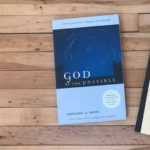We run our website the way we wished the whole internet worked: we provide high quality original content with no ads. We are funded solely by your direct support. Please consider supporting this project.

What is the significance of Esther 4:14?
The wise Mordecai encourages Esther to bravely risk her life by pleading the case of the Jews before King Xerxes, saying, “…if you remain silent at this time, relief and deliverance for the Jews will arise from another place, but you and your father’s family will perish. And who knows but that you have come to royal position for such a time as this?”
Mordecai is certain that relief will come to the Jews, sooner or later. But the fate of Esther and her family depends on the free decision she has to make. And it may be, he says, that God has raised Esther up in these circumstance to be the means by which he brings relief to the Jewish people. Yet, even God’s plans, to some degree, hang upon the “if” of personal decisions.
Category: Q&A
Tags: Open Theism, Q&A
Topics: Open Theism
Verse: Esther 4
Related Reading

Podcast: The Making of God of the Possible
Greg talks about making his book “God of the Possible,” then offers his initial thoughts on Thomas Oord’s book “God Can’t.” http://traffic.libsyn.com/askgregboyd/Episode_0468.mp3

If God shouldn’t get blamed when free agents do evil, why should he be thanked when they do good?
Scripture tells us that every good gift comes from God the Father who “does not change like shifting shadows” (Ja 1:17). I interpret this to mean that God is always good and that he’s always working for good. In all circumstances, Paul said, “God is working for the good” (Rom. 8:28). We live and move…

Molinism and Open Theism – Part II
In the previous post on this topic I briefly outlined Molinism and then discussed “the grounding objection.” In this post I’ll first discuss another fundamental objection to Molinism and then discuss how it is overcome by the Open View of the Future. In the process it will be clear how the Open View differs from…

What is the significance of Judges 2:20–3:5?
The Lord did not provide any assistance in Israel’s battles, “In order to test Israel, whether or not they would take care to walk in the way of the Lord as their ancestors did” (vs. 22). The pagan opponents of Israel “were for the testing of Israel, to know whether Israel would obey the commandments…

Is There Room for Doubt in Faith?
Many Christians today assume that faith is the antithesis of doubt. In this view, a person’s faith is thought to be strong to the extent that they don’t question their beliefs or struggle with God in whom they believe. As widespread as this view is, I believe it is unbiblical and profoundly unhelpful. My experience…

The God Who Over-Knows The Future
God perfectly knows from all time what will be, what would be, and what may be. He sovereignly sets parameters for all three categories. His knowledge of what might occur leaves him no less prepared for the future than his knowledge of determined aspects of creation. Because he is infinitely intelligent, he does not need…
